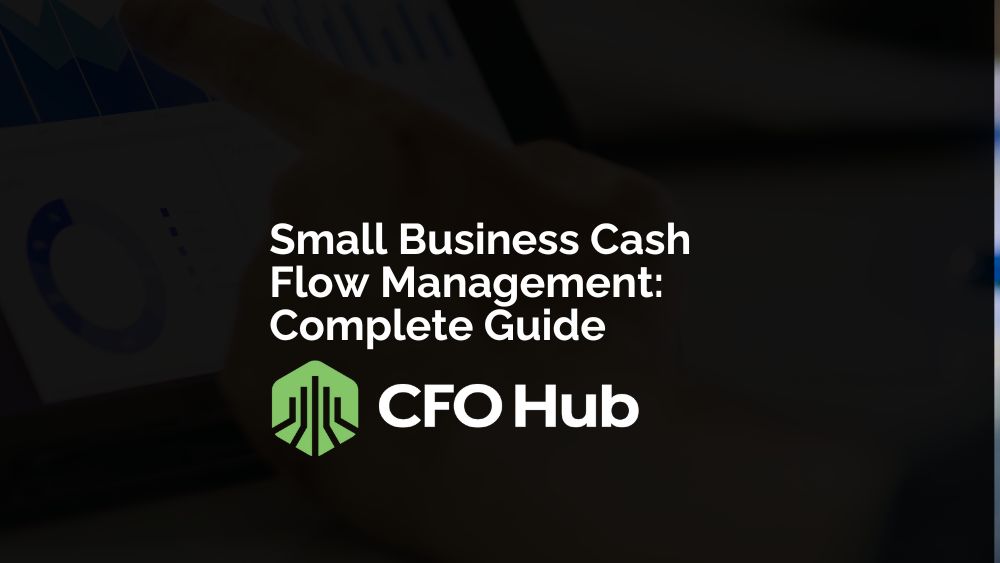Effective cash flow management is the backbone of a healthy small business. Without a firm grasp of money coming in and going out, even profitable companies can struggle. Here’s your complete guide to mastering cash flow management, ensuring financial stability, and fostering sustainable growth.
Why Cash Flow Management Matters
Cash flow management isn’t simply about profitability – it’s about ensuring you have sufficient liquidity to meet short-term obligations. Many businesses face financial distress, not because they aren’t making profits, but because they mismanage their cash. Proper cash flow management ensures you have enough cash on hand to cover expenses, invest in growth opportunities, and handle unexpected events.
Understanding Your Cash Flow
What is Cash Flow?
Cash flow refers to the net amount of cash moving into and out of your business over a specific period. Positive cash flow indicates that more money is coming in than going out, whereas negative cash flow signals the opposite.
Cash Flow vs. Profit
It’s crucial to distinguish cash flow from profit. Profit measures revenue minus expenses, while cash flow tracks actual money movement. A profitable company can still experience negative cash flow if its receivables aren’t timely collected or if inventory ties up cash.
Key Strategies for Effective Cash Flow Management
Create a Cash Flow Budget
A cash flow budget forecasts your expected inflows and outflows, helping you anticipate potential shortfalls. Regularly updating this budget allows you to make informed decisions about expenses and investments.
Use a 13-Week Cash Forecast
Short-term cash forecasting is essential for staying agile. A 13-week cash forecast provides detailed insights into weekly cash needs and potential challenges ahead, allowing proactive adjustments. Learn more about creating one by visiting How Do I Build a 13-Week Cash Forecast?
Accelerate Receivables
Prompt invoicing, clear payment terms, and regular follow-ups on overdue invoices can significantly enhance cash inflow. Offering multiple convenient payment methods and possibly incentives for early payments can further streamline collections.
Manage Payables Strategically
Negotiating extended payment terms with suppliers and strategically timing payments can optimize cash usage. Always balance maintaining positive supplier relationships with preserving cash.
Control Inventory Levels
Excessive inventory ties up cash, reducing liquidity. Adopt inventory management techniques, such as just-in-time (JIT) ordering or regular audits, to keep stock at optimal levels without sacrificing operational efficiency.
Reduce Overhead Costs
Analyze expenses regularly to identify opportunities to reduce overhead costs without impacting your operational effectiveness. Consider renegotiating contracts, optimizing utilities, or outsourcing certain functions to keep costs manageable.
What to Do With Excess Cash?
When your business experiences positive cash flow consistently, the next question becomes: how to best utilize surplus cash? Strategic decisions here can significantly impact your long-term growth and profitability. Read more about leveraging your extra funds effectively by visiting What Should My Business Do With Excess Cash?
When to Seek Professional Assistance
While many small businesses manage cash flow internally, seeking expert guidance often becomes essential as complexity grows. Fractional controller services offer small businesses the opportunity to access expert financial management at a fraction of the cost of a full-time hire. Professionals can streamline your budgeting, forecasting, and reporting processes, enhancing your cash management efficiency significantly. Learn more about how your business can benefit from these services by visiting our Fractional Controller Services page.
Cash Flow Management Tools
Leverage modern financial tools and software solutions to streamline and automate cash flow management. Software solutions can provide real-time insights into your cash position, automate invoicing, track payments, and simplify forecasting.
Regular Review and Adjustments
Cash flow management isn’t a one-time effort. It requires ongoing review and adjustment. Establish monthly or quarterly cash flow review meetings to assess the accuracy of forecasts, identify emerging trends, and recalibrate strategies as necessary.
Common Cash Flow Pitfalls to Avoid
- Ignoring receivables management: Uncollected invoices can quickly drain liquidity.
- Overestimating sales projections: Unrealistic sales forecasts lead to inflated budgets and cash shortages.
- Not maintaining adequate cash reserves: Emergencies or unexpected expenses can significantly disrupt operations without reserves.
- Poor expense tracking: Uncontrolled spending and lack of oversight can severely impact liquidity.
Take Control of Your Cash Flow Today
Effective cash flow management is critical for the health and growth of small businesses. By consistently monitoring, forecasting, and adjusting your approach, you safeguard your company’s financial health and set the stage for sustained success.
If you’re ready to enhance your small business’s cash flow management, CFO Hub can help. Our team provides expert fractional accounting services tailored to your specific needs. Contact us today for a free consultation, and let’s ensure your business thrives.
Jack Perkins, CPA founded CFO Hub to provide strategic finance and accounting services to enterprises of all sizes. Prior to founding CFO Hub, Jack served as the CFO and Controller of rapidly growing enterprises in California. Jack's written content has been featured in Forbes, Entrepreneur, and several other notable publications.
Visit Jack's Expert Hub to learn more about his experience and read more of his editorial content

